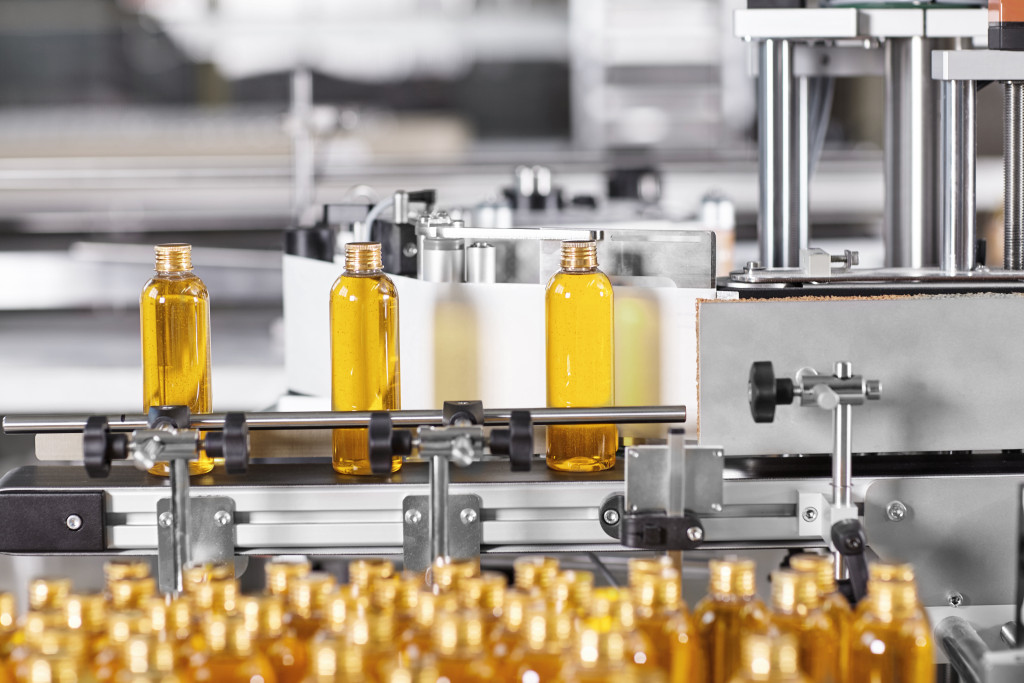- Invest in advanced quality control technologies to optimize production processes and create higher-quality products.
- Implement regular maintenance and calibration of machines for maximum efficiency and product quality.
- Utilize data-driven process monitoring systems and invest in precision measuring tools for greater accuracy and precision in production.
- Increase automation of processes to streamline the manufacturing cycle and reduce operational costs.
Factory production processes have become increasingly automated in recent years, improving precision and accuracy. However, there are still ways to improve the precision of these factory processes further. By taking a few basic steps, manufacturers can ensure that their products meet the highest standards of quality and accuracy. Doing so will help them stay ahead of the competition by creating higher-quality products more consistently than ever before.
Invest in advanced quality control technologies.

Investing in advanced quality control technologies is essential to optimize production processes. It helps factories to produce precise results with minimal errors. The use of machines has also become increasingly important in quality control and measuring systems due to the capabilities of devices to store data, accurately evaluate products, and analyze operations with increasing speed.
Reliable machine vision systems are quickly becoming a reliable way of automating different factory processes and contribute significantly towards improving accuracy and precision in manufacturing. Not only this, but despite the initial investment, companies can reap the benefits that quality control will provide them with higher production yields, increased customer satisfaction, and decreased customer complaints, which will inevitably contribute positively towards to bottom line.
Improve the production process.

Here are some tips to improve the production process of your factory:
Regularly maintain and calibrate machines.
Regular and thorough maintenance and calibration of machines are essential for maximum efficiency in factory production processes. These processes must operate with the utmost precision to yield high-quality outputs, which can only be achieved when machines consistently run at the proper levels.
By regularly monitoring and adjusting settings on a given machine, one can ensure that the best results are being achieved and that there are no possible discrepancies in product quality caused by a faulty or unbalanced machine.
Not only is this beneficial to production yields, but it will also save time and resources over the long term because unexpected downtime due to broken or malfunctioning machines is also reduced. Thus, maintenance and calibration are fundamental components of successful factory production.
Implement data-driven process monitoring systems.
Implementing data-driven process monitoring systems is fundamental for increasing manufacturing precision. By leveraging real-time sensors, these systems generate vast amounts of data that can be used to acquire insights into how components behave and interact as an assembly.
This further enables manufacturers to predict any potential performance issues or bottlenecks in production before they occur, helping them to adjust processes accordingly to improve output accuracy.
It also allows for better control over costs, as identifying weaknesses and inefficiencies early on can help integrate more efficient parts or processes. Ultimately it can save significant time and money and ensure operations are running efficiently.
Increase automation of processes.
Automation of processes is critical in ensuring precision in factory production processes. It goes beyond simply setting up machines and leaving them to do their job – the process must be monitored and supervised so that output is consistent, with maximum accuracy and minimum deviation from the desired results.
Every task step could take much longer without proper automation, leading to costly delays, inaccurate results, and rework. Implementing automation streamlines the manufacturing process and increases real-time visibility into production rates and performance.
Automation can also help minimize errors due to fatigue or absent-mindedness of individuals manually carrying out the tasks. Furthermore, automated processes are more reliable than manual processes as they reduce operational costs in the long run due to increased efficiency and reduced manual labor requirements.
Utilize precision measuring tools.
Accurately measuring components and assemblies is essential when producing high-quality products. Incorporating precision measuring tools into factory production processes can help manufacturers reduce waste, cut costs and gain a competitive edge by ensuring closer tolerances.
Technologies such as laser micrometers, non-contact sensors, and digital plug gauges can measure lengths, diameters, and other features with an accuracy of up to two-millionths of an inch. Investing in these tools improves the success rate of production runs and eliminates costly errors associated with inferior paperwork systems.
Regular calibration checks are also crucial for ensuring measurement stability over time. By taking this proactive approach towards precision accuracy, manufacturers can build trust with their customers, drive up quality standards in the industry and increase their market share.
Review and refine production processes regularly.
Properly reviewing and refining production processes is essential for any factory setting to ensure precision. Regular assessments of product flow, staff performance, and efficiency give a more precise overview of what changes need to be made to optimize overall productivity.
This is particularly important since production processes are often susceptible to wear and tear as well as inconsistencies in labor or materials. Furthermore, reviewing and refining these processes can save time and money by preventing mistakes that snowball if left unchecked.
These are just some ways factories can improve production accuracy and precision. By taking a strategic approach to quality control, investing in advanced technologies, optimizing the production process, utilizing precision measuring tools, and reviewing processes regularly, manufacturers can ensure their products meet the highest standards of quality and accuracy.

